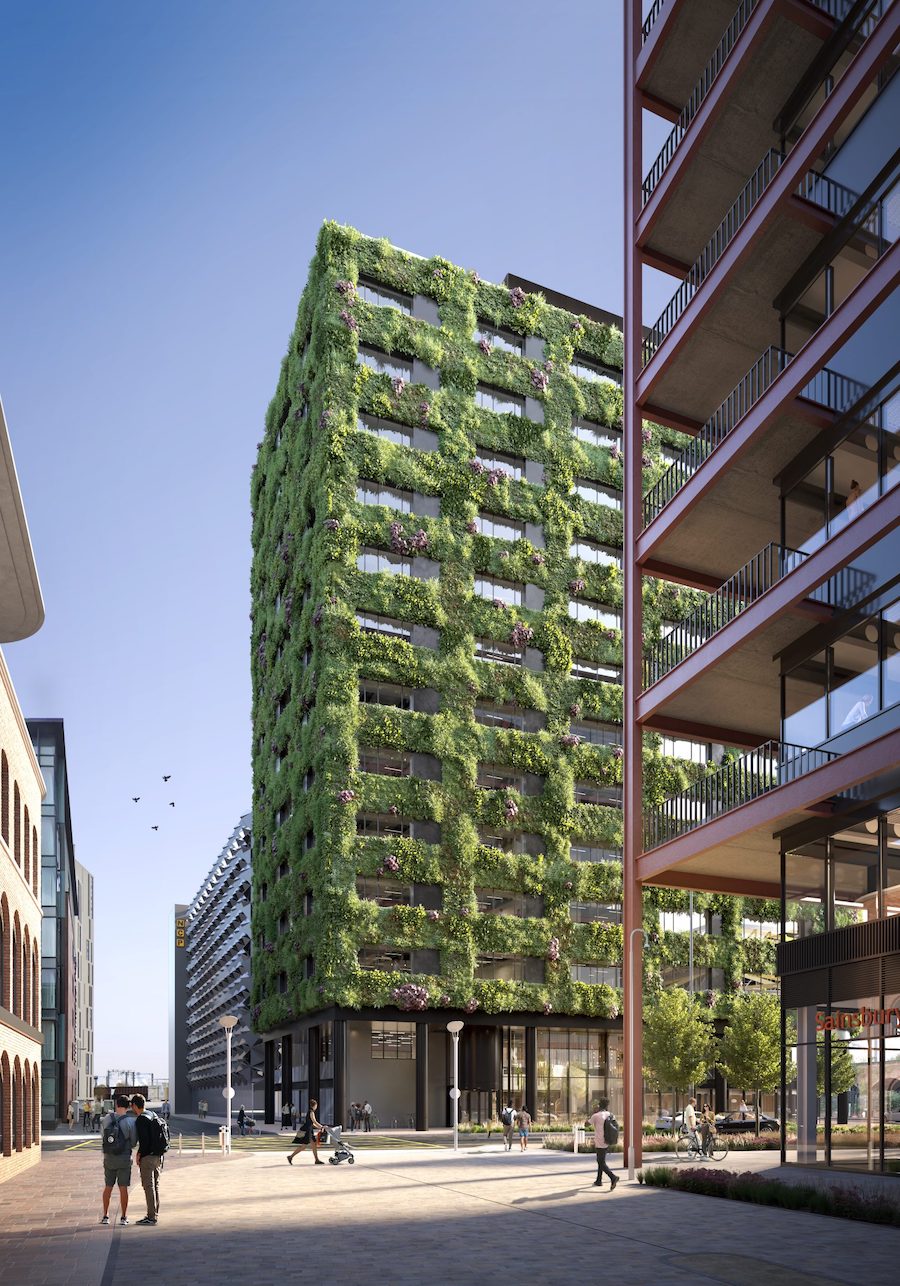Office & workplace / Sustainability
Landmark sustainable office building reaches completion
By Andrew Sansom | 22 Jan 2024 | 0
The City of Salford is now home to one of the UK’s most sustainable office buildings – the £36 million Eden building, which also boasts Europe’s largest living wall.
From the site of a derelict surface car park, the English Cities Fund (ECF) has created a 115,000 sq ft, 12-storey development with the potential of transforming a neglected urban area into a diverse mixed-use destination, as part of its £1bn regeneration of the Salford Central area.
Eden’s most noticeable design feature is its living wall, which covers in excess of 36,000 sq ft of the office building with more than 350,000 plants. This major piece of green infrastructure – believed to be the largest living wall in Europe – is said to remove air pollutants, lower urban temperatures, and improve biodiversity in Salford. By providing biophilic health and wellbeing benefits for the building’s occupiers, the wall contributes to the ECF’s aim to embrace the WELL Building Standard principles on improving human health and wellbeing through design.
Danielle Gillespie, director of partnerships and major projects at Homes England, said: “The completion of the Eden building by English Cities Fund is an important milestone in the transformational regeneration of Salford. 
“This achievement will contribute further to the creation of vibrant new places, jobs, homes, and opportunities across the region. Eden has set new and ambitious standards for future buildings across the country, which will contribute to the quality and sustainability of the built landscape.”
In July last year, it was reported that Eden had achieved a 5.5 NABERS ‘Design Reviewed’ Target Rating – the first new-build in the UK to achieve this certification, which rates the energy efficiency of office buildings.
Eden has been realised through a joint venture between the ECF, with urban planning consultancy Muse, Legal & General and Homes England, and in partnership with Salford Council.
Cundall delivered sustainability services for the project, in addition to consulting on acoustics, air quality and odour. It also provided detailed building services design to meet the onerous energy performance requirements and worked collaboratively to develop Eden’s ESG and energy strategy. From the inception of the project, the sustainability team managed the NABERS UK Design for Performance process through to the detailed energy modelling and independent design review, securing the 5.5 NABERS ‘Design Reviewed’ Target Rating.
Commenting back in July, Simon Wyatt, a partner at Cundall and sustainability lead for Eden, said: “From the beginning we knew that Eden had ambitious sustainability goals and we were excited to work with a client that has the same vision as Cundall. NABERS UK is a relatively new process to get it through and the independent design review can be demanding, but our team of NABERS assessors worked hard to achieve the target the ECF wanted.”
Now complete, Eden will be enabled to run solely on 100-per-cent renewable electricity, with no gas heating or hot water, and it’s been designed using the UK Green Building Council’s 2030-2035 operational energy targets. Designed in collaboration with Make Architects, Eden is also a LETI (London Energy Transformation Initiative) pioneer project – a group of projects that seek to achieve KPI targets in line with LETI’s Climate Emergency Design Guide.
During Eden’s inception, partners undertook early-stage, whole-life, and upfront embodied carbon assessments, to eliminate waste and reduce the building’s whole carbon footprint. Sustainable materials have been used throughout the building’s construction where possible, such as recycled steel for reinforcement, 40 per cent cement replacement for the substructure, and 30 per cent cement replacement for the superstructure.
Organisations involved
